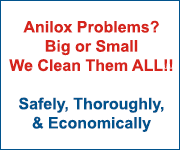Label PRomotion | Shoppers Trust Product Labels More Than Ads
- Published: September 27, 2016, By Mark Lusky
Consumers perceive packaging's close proximity to the product as more trustworthy, less manipulative.
 Labels build product credibility and believability. That’s the clear takeaway of a recent report on Jacksonville, FL, TV station WJXT.
Labels build product credibility and believability. That’s the clear takeaway of a recent report on Jacksonville, FL, TV station WJXT.
Notes the report, “Shoppers trust product labels more than ads…A marketing claim placed on a product package is more believable to shoppers than one made in an advertisement, says new research by the University of Miami School of Business Administration. The research, published in the July 2016 issue of the Journal of Consumer Psychology, is the first to demonstrate that consumers respond differently to these two promotional mediums because packages are perceived as physically closer to the product and, therefore, more trustworthy.”
The report adds, “According to the research, consumers perceive product packages, and thus the claims they offer, as more trustworthy and less manipulative than ads. Thus consumers are more likely to believe what the product package claims and purchase it.”
This supports the multifaceted importance of labels. They’re not just a conduit to impart information, but a way to influence buyers in the process—making labels a force to be reckoned with as part of a product manufacturer’s PR, promotion, and advertising.
When ‘no’ means ‘yes’ on buying decisions
A current label trend that reinforces their trust stature is the emphasis on what isn’t in a product. A Wall Street Journal article points out, " Stop worrying about what’s in your shampoo, moisturizer or deodorant. Product makers want you to focus on what isn’t in them. Personal-care product makers call them ‘no lists,’ with such phrases as ‘no parabens,’ ‘no sulfates’ or ‘gluten free’ taking prominent spots on packaging…Marketers say they eliminate the hassle of decoding a complicated ingredient list and attract shoppers by flagging what to avoid.”
On occasion, however, this may backfire. According to Milwaukee, WI, TV station WTMJ, “Food shopping these days can be confusing. Companies are not only using labels that show what's in a product but now also what's *not.* …Some experts are now even questioning whether these ‘no list’ foods are creating peace of mind or just more confusion.”
Regardless, labels have our collective attention
Further demonstration of the power of labels is how much attention the public pays to reading them. Emphasizes The Hartman Group, a forbes.com contributor, “Consumers Actually Do Read Product Labels…the majority of consumers say they do read the nutritional panel on product labels and varies according to their weight management involvement…Among consumers who say they are watching their weight, 81 percent read the nutritional panel on product labels and of these, 59 percent say they frequently or almost always read nutrition labels. Even consumers who aren’t necessarily diet-minded read the Nutrition Facts panel: 72 percent say they read it and among these consumers who are not watching their weight, 42 percent read it frequently or almost always.”
So, why the small type? Since there seems to be ample evidence of the importance of labels as a marketing and selling tool, why are so many virtually impossible to read because of the small type? This is an ongoing conundrum. At the same time that there are concerted conservation efforts to reduce packaging size and volume of materials, there is increasing pressure for “full and complete” disclosure.
The end result is trying to put ever-increasing volumes of information on an ever-shrinking amount of real estate. Icons signifying such designations as non-GMO can help, but in the end, something has to give. At least so far, it’s our eyesight. It will be interesting to follow this issue and if/how it resolves.
In the interim, time to rethink those labels. They’re heavyweights when it comes to marketing and sales.
Mark Lusky is president of Lusky Enterprises Inc., a marketing communications and content development company. Since 2008, he has worked with Lightning Labels, a Denver-based all-digital custom label printing company, as a content developer specializing in expert advice articles. Lusky presents common-sense ideas grounded in doing what’s real and right for managing and enhancing public image.












